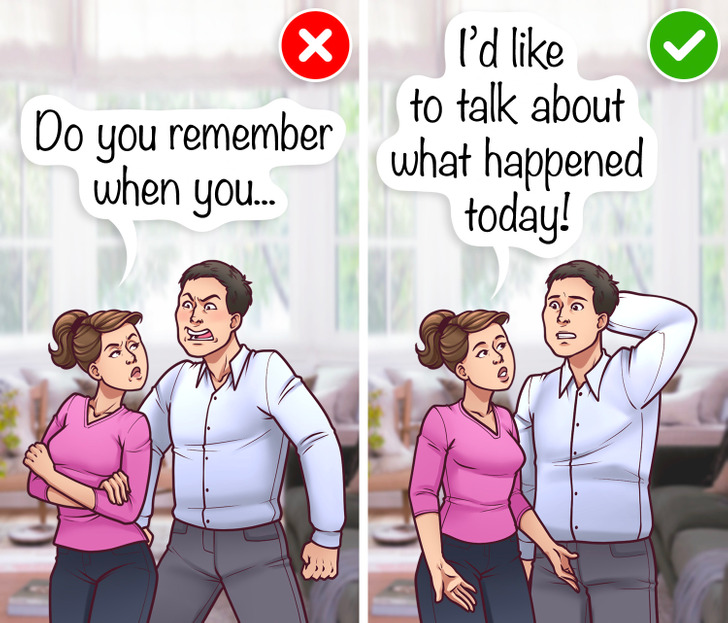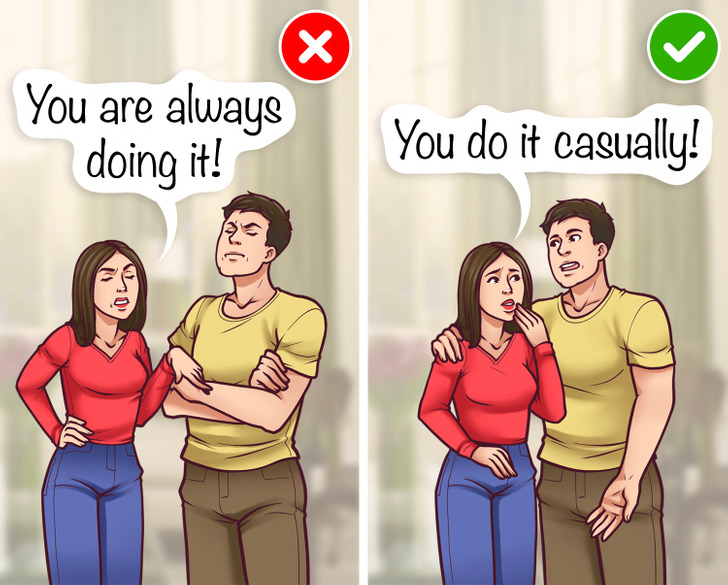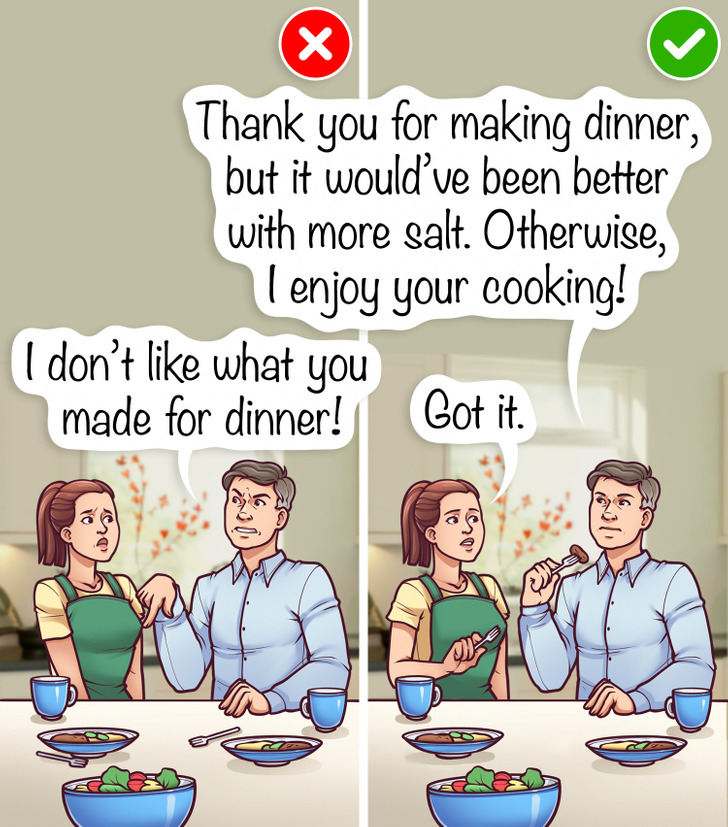10 Tips That Could Help You in Emergency Situations


An online study in 2012 has shown that couples who go through healthy conflict are 10 times more likely to have a happy relationship versus those who ignore difficult conversations. Therefore, fighting with your partner can have many benefits for your relationship as long as you and your loved one do so in a loving, constructive manner.
We at Bright Side understand that arguing is quite common, and that’s why we gathered a list of techniques to follow in order to do it better.

If you feel like things are starting to get heated, you should choose the moment and place to vent your frustrations. Taking some time before arguing about the matter will help both of you to prepare yourself and say things wisely before hashing things out at each other out of anger and frustration. So if you start to have a fight, say something like, “Let’s pick it up this evening or another time when there’s time to discuss things,” as psychologists explain.

One important rule that needs to be respected in order to have healthy arguments is to check if we are ready to navigate conflict. Fighting with a loved one is an extremely difficult thing that we need to be prepared for at the very minimum. That’s why experts advise people to make sure their basic needs, like food, water, air, and sleep, are met before they go through a tough conversation.

During an argument, you’re more likely to bring out past mistakes and deviate the subject to other problems you were planning to speak about later. But that only makes it worse since you both can’t focus on one thing at a time. Instead, stay on topic to discuss the current matter, and once you resolve the first issue, you can address a new one in different circumstances.

When a loved one says something you don’t agree with, you will probably say something back right away. But the best thing to do is listen until your partner is finished speaking. It only signals respect, willingness to cooperate, and most importantly, the act of listening to your partner. Also, remember that proper body language can also make them feel heard.

One easy yet very effective technique is to use “I” instead of “you.” In other words, saying, “You didn’t come to my friend’s birthday,” is a lot different than saying, “Not attending my friend’s birthday made me feel sad.” This actually helps to share your feelings and your frustrations without starting the blame game, which doesn’t usually end well.

Once someone starts using generalizing words, like “always” and “never,” they automatically exaggerate the situation, triggering the other person to fall into defensive behavior. This situation can be avoided though if you concentrate on sharing your feelings calmly, or maybe use less aggressive words, like “occasionally.”

Instead, communicate in a friendly manner that focuses on the behavior itself and not the person in front of you. One technique you can use in this case is the confrontation sandwich — throw some words of praise and encouragement at your partner at the beginning and at the end of the criticism.

Arguments are hard, and if we don’t learn to control our emotions during hard times, we might get on a destructive path. On the other hand, we can learn to be in charge of our emotions and stay present and attentive during heated moments, and that’s why meditation is highly praised among relationship experts.

Things can escalate quickly in the middle of an argument, and sometimes one of you can reach a boiling point that could lead to name-calling, insults, or even violence. In this case, it’s best to walk away from the discussion in order to cool down and come back for real conflict resolution. Experts say that the timeout shouldn’t be more than 24 hours, otherwise, it just gets swept under the rug.

Mirroring someone refers to the act of adopting the person’s posture, gestures, and words. According to psychological research, this behavior is a sign of a strong connection because mirroring someone helps us get a better idea of what the other is experiencing from their perspective. When this happens, both of you sense a form of empathy, comfort, and trust toward each other.

When you make the choice to be with someone, you set your ego aside when resolving issues, which means you don’t actually focus on who’s right and who’s wrong but, instead, you both work on solving the problem together. Everything gets better when you acknowledge that you are teammates and not enemies.

After some fights, we start to learn to understand each other and respect each other’s boundaries. For example, your partner may not like being interrupted or walking away in the middle of an argument, and you hate being constantly blamed. Next time, both of you will avoid those harmful behaviors and set rules for how you want to discuss things.
Do you have another technique to add to this list? We’d love to hear about it in the comments!











